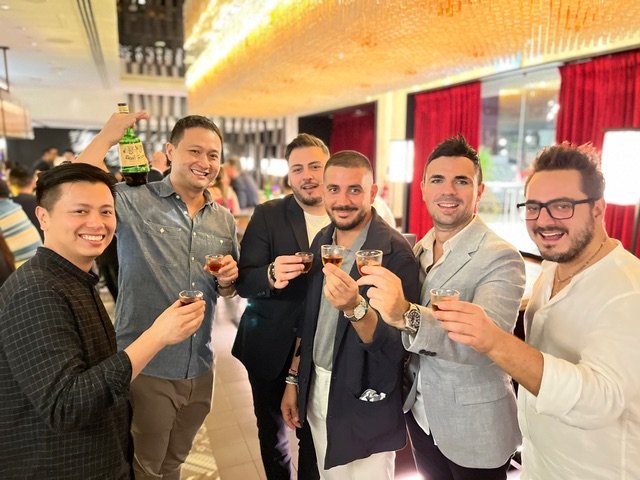5 THINGS THAT SPELL SUCCESS for a craft spirit launch in singapore
In conversation with Stefanie Goh, Co-Founder of Distilled - An independent, Singapore craft spirits distributor
Easily regarded as the cocktail capital of Asia — Launching a spirit in Singapore is a desirable prospect for many brands. Stefanie Goh, Co-Founder of Distilled in Singapore, — the company responsible for introducing quality artisanal spirits such as Gingin Gin from Western Australia and Ron Colón Salvadoreño rum to the Singapore market. – weighs in with an insider’s perspective.
01: A Strong Identity
According to Goh, the first criterion Distilled looks for in a potential spirit is a strong identity. In a market saturated with choices, a brand needs a narrative that resonates with both consumers and the trade (i.e. bartenders, bar owners and more). Goh has always been drawn to brands that tell a compelling story, create an emotional connection with the audience and prioritise quality above all – in her experience, it is those brands that stand the test of time in competitive Singapore.
As an example, Wolfburn Distillery has always been very singular about who they are and what they create. Located at the northernmost tip of mainland Scotland, Wolfburn only makes single malt scotch in its own distinct style. “They did not make gin or vodka, while they were waiting out the requisite three years for their whisky to mature and be considered a scotch, and never will. They are fiercely independent and will continue to blaze their own trail in their own Wolfburn way” says Goh. It is spirit stories such as this that have the potential for success from the get-go.
02: Quality Over Quantity
The first thing we ask ourselves when considering a spirit brand is “Would we drink a bottle of this ourselves” says Goh. Since they champion small- batch makers, quality is prioritised over quantity. Artisanally made, privately owned brands hold particular appeal. It's about exclusivity and a dedication to craft that sets a brand apart in the discerning Singaporean market. Additionally, Goh emphasises that taste is paramount. Potential partners need to be able to answer the question, "What does it taste like?" with clarity and conviction. In a city that appreciates quality and craftsmanship, the flavour profile of a spirit can make or break its success.
03: Direct Interaction with Brand Owners
For Distilled, a direct line of communication with brand owners is crucial. She expresses a preference for working with brands that are either independent or family-owned as this not only ensures a more personalised approach but also aligns with the market demand of consumers seeking authenticity and a connection with the makers. One such brand is Old Young’s of Swan Valley in Western Australia. James Young, the master distiller and founder of Old Young’s is very much the driving force behind the award-winning range of gins and vodkas and takes a keen and personal interest in all of the activities we spearhead for them in Singapore and the region. Interestingly, with the exception of the Tuscan Juniper that goes into the Old Young’s gins, all botanicals are sourced from Australia – winning them points for identity and quality too.
04: Appetite for Singapore Market
“A craft spirit entering the Singapore marketshould not focus on high volumes alone”. In Singapore, marketing activities require a nuanced approach and an understanding that the biggest win is visibility. Visibility within the region’s leading cocktail bars and associations with seasoned, well- travelled and highly experienced bartenders. Goh emphasises that it is not about high sales volume but about strategic placement. The world’s eyes are on Singapore’s cocktail bars and the audience values quality and taste. With a partner like Distilled, being positioned in the right places is key, and a spirit brand's appetite to understand this is a significant factor in the decision-making process.
05: Longevity Potential
“A craft spirit brand, no matter how small, should have the potential to last” says Goh, She also
stresses the importance of brands with longevity, discouraging those looking for overnight success. In a post-COVID environment where there are increased costs across the board, Distilled is selective and cautious in taking on new partnerships, emphasising the need for a brand's commitment to investing in the market and commitment to the long haul.
In conclusion, in a market where SG-based bartenders are well-informed and connected, launching a spirit in Singapore requires a delicate balance of quality, identity, and strategic marketing. Stefanie Goh's insights from Distilled serve as a valuable guide for brands looking to make a mark in the cocktail capital of Asia.
Images Courtesy: Distilled and Smoke & Mirrors




